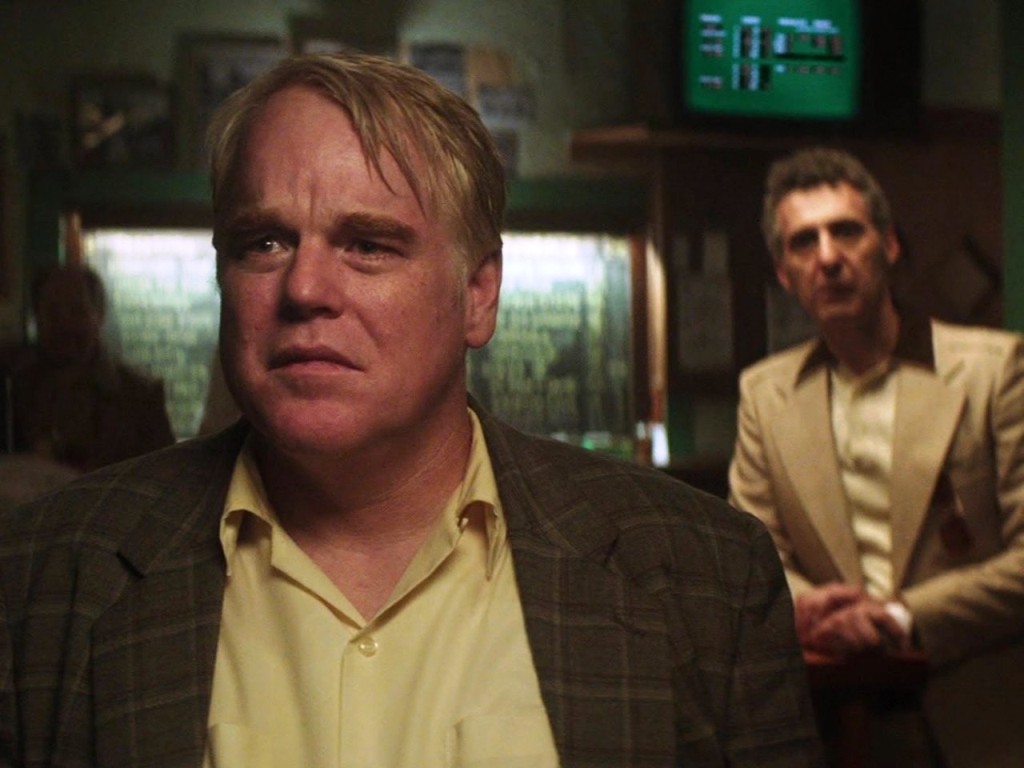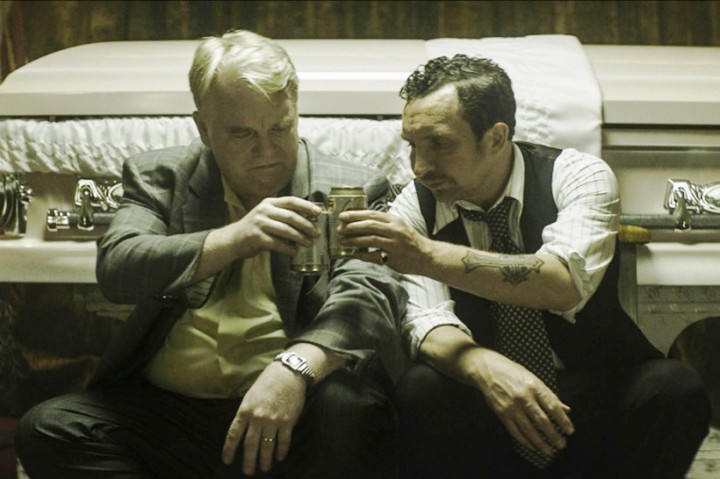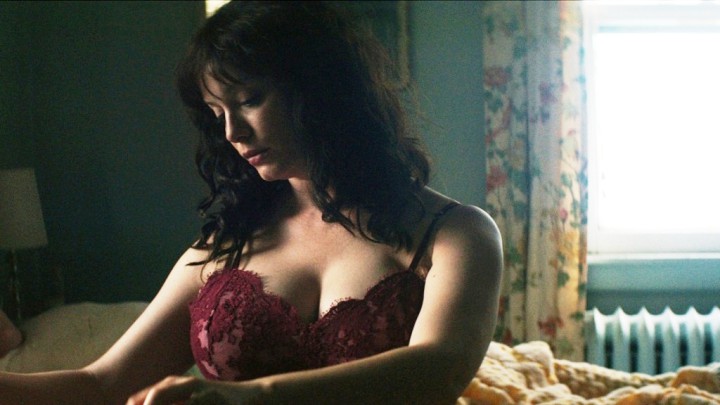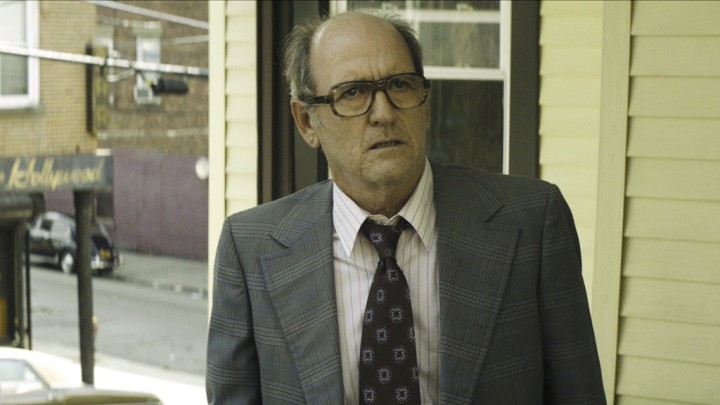John Slattery’s (TV’s Mad Men) feature film directorial debut, God’s Pocket, has been pretty roughly handled by most of the critics, and I have no trouble understanding that. In fact, for the first half of the film, I was willing to join them. During the second half, however, I grew to kind of like it. In the last 15 minutes, it won me over almost completely, but it wasn’t enough to make me overlook the film’s considerable shortcomings. Some of the things I just don’t personally like — the deliberately ugly cinematography, the fact that the film is fairly charmless and styleless — I can accept as artistic choices. That the film is deliberate in the physical ugliness of its depiction of the working class neighborhood of God’s Pocket (the place looks like the sun never fully penerates the grime and the smog) is evident in the completely different look of its single journey into the country and its final scene in Florida. The lack of much in the way of style and charm suggests Slattery is trying to channel the late Sidney Lumet — a defensible choice.
However, I cannot find any justification for the film’s almost nonexistent establishment of the main characters. (This is a movie that doesn’t even tell you when it’s set, though it’s apparently in the late 1970s.) It may be argued that the viewer is being left to figure the characters out on his or her own, but it doesn’t work very well in most of the cases. My suspicion is that we’re experiencing firsthand the pitfall of a filmmaker coming from series TV, where the director is used to dealing with already established characters. (Slattery’s directorial efforts on Mad Men only began in the show’s third season.) Here, Slattery seems to think we already have a familiarity with the residents of God’s Pocket, but we don’t. The only clearly established character is Leon (Caleb Landry Jones), the reprehensible stepson of Mickey Scarpato (Philip Seymour Hoffman). He’s dead at the beginning of the film, but in the flashback that makes up the bulk of the story, Leon spends his screen time like a psychotic variation of one of those mystery film characters who goes around begging to be killed. And when he is, we’re not sorry. Nor are we surprised that his boss and co-workers call it an accident. Who wouldn’t be glad to see the last of Leon?
The death of Leon turns out to be the driving factor of the film. The one person who actually cares about Leon’s death — though everyone in the neighorhood professes to — is his mother, Jeanie Scarpato (Christina Hendricks, Mad Men). The film does nothing to make her grief understandable — maybe playing the grieving mother breaks the tedium of her existence — but the film needs her to care in order to work. This puts the pressure on small-time crook and meat wholesaler Mickey to cough up a lot of money to pay sleazy mortuary owner Smilin’ Jack Moran (Eddie Marsan) to give Leon a proper funeral. This results in all manner of bad decisions and complications — all of them rather pathetic and some of them darkly comic.
While this is going on, Jeanie is becoming romantically, or at least carnally, involved with local alcoholic newspaper columnist Richard Shellburn (Richard Jenkins), a man who has unwisely romanticized the denizens of God’s Pocket out of all proportion. This, like everything else in the story, is a surefire recipe for disaster. All of this works to some degree, but it works best in the film’s final section, perhaps because that was the most autobiographical part of the source novel by Peter Dexter (The Paperboy). Slattery benefits from having actors like Hoffman and Jenkins to help with carrying the film over the rougher spots, but the results, while worthwhile, are still pretty uneven. Rated R for violence, language throughout and sexual content.
Starts Friday at Carolina Cinemas.








This leaves us by Friday. I can’t say I’m surprised.
I’m somewhat surprised. I figured the cast alone would allow it to receive second week status.
That 31% RT rating can’t have helped.
No, I’m definitely in the minority on admiring it.
I don’t exactly dislike it, but I don’t admire it and will never see it again.